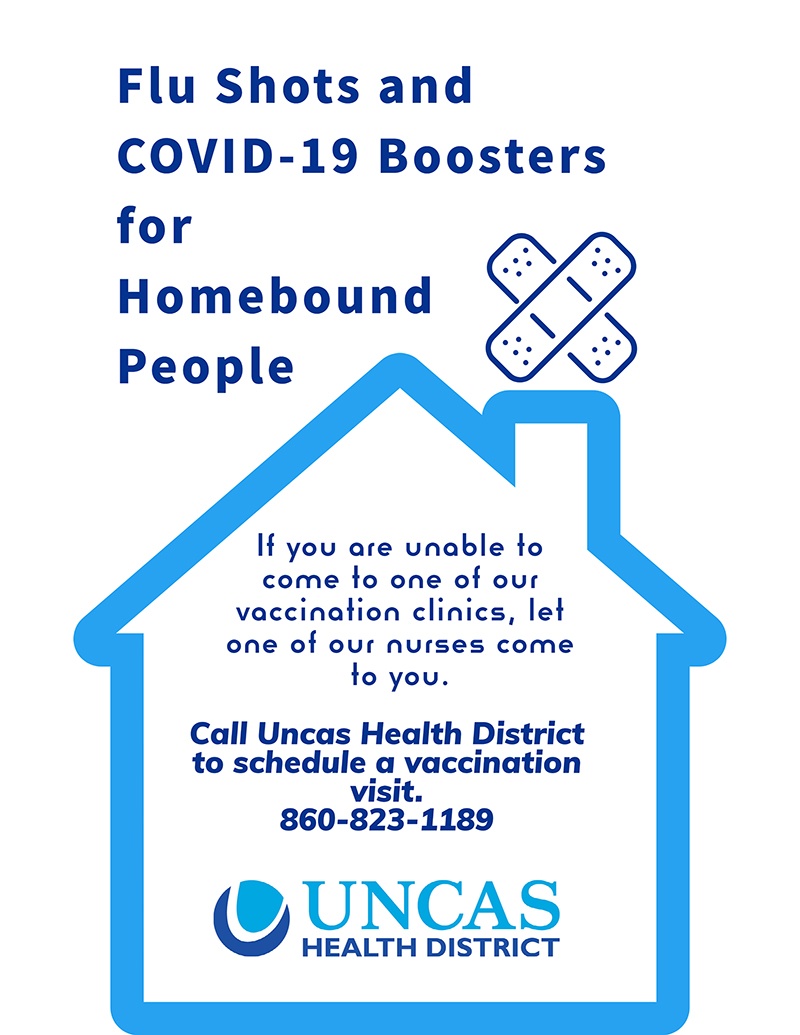Influenza (FLU) INFORMATION
The Flu is a contagious respiratory illness caused by influenza viruses that infect the nose, throat, and sometimes the lungs. It can cause mild to severe illness and, at times, can lead to death. The best way to prevent Flu is by getting a yearly flu vaccine.

Influenza (flu) can cause mild to severe illness, and at times can lead to death. Flu symptoms usually come on suddenly. People who have flu often feel some or all of these symptoms:
- fever* or feeling feverish/chills
- cough
- sore throat
- runny or stuffy nose
- muscle or body aches
- headaches
- fatigue (tiredness)
- some people may have vomiting and diarrhea, though this is more common in children than adults.
*It’s important to note that not everyone with flu will have a fever.
How Flu Spreads
Most experts believe that flu viruses spread mainly by tiny droplets made when people with flu cough, sneeze, or talk. These droplets can land in the mouths or noses of nearby people. Less often, a person might get flu by touching a surface or object that has flu virus on it and then touching their own mouth, nose or possibly their eyes.
Influenza Vaccination Awareness
The importance of receiving the influenza vaccine remains significant for individuals aged 6 months and older throughout the year. Here are essential points to consider about flu vaccination:
Universal Benefits
Annual flu vaccination is a crucial step in safeguarding yourself, your family, and the broader community against the flu. CDC recommends this vaccine for everyone aged 6 months and older to reduce the risk of contracting and spreading the flu.
Shielding Vulnerable Groups
Certain populations, such as adults aged 65 and above and individuals with chronic conditions, face higher risks of severe flu complications. Vaccination acts as a protective measure, reducing potential flu-related dangers for these groups.
Special Considerations
Older Adults
As people get older, their immune systems do not work as well. Older adults are also more likely to have underlying health conditions. Most deaths from respiratory viruses occur in people older than 65, with risk increasing sharply with advancing age.
Young Children
Young children, particularly infants, have immune systems that are still developing. In addition, their lungs and airways are smaller, making viruses that affect airways more of a threat.
Pregnant People
Changes in the immune system, heart, and lungs during pregnancy can raise the risk of getting very sick from respiratory viruses.
People with Disabilities
Some disabilities can raise a person's risk of getting very sick from respiratory viruses. For example, some people with disabilities are more likely to have underlying medical conditions, live in congregate settings, or experience factors and conditions stemming from social determinants of health (SDOH).
Immunocompromised Persons
People with weakened immune systems (immunocompromise) have lower defenses against infections, and their bodies may have a harder time building lasting protection from past immunization or infection. People can be immunocompromised either because of a medical condition or because they receive immunosuppressive medications or treatments.
Examples of medical conditions or treatments that may result in moderate to severe immunocompromise include but are not limited to, cancer treatment, organ transplant with immunosuppressive therapy, and primary immunodeficiency.

Contact Uncas Health District
Our office is available Monday through Friday, 8:00 am - 4:00 pm, for all of the residents in our district.
Phone: 860-823-1189
Fax: 860-887-7898
Email: [email protected]
Address
Campbell Building
401 W. Thames Street, Suite 106
Norwich, CT 06360
Park in the back of the Campbell Building and enter through the Credit Union entrance.

